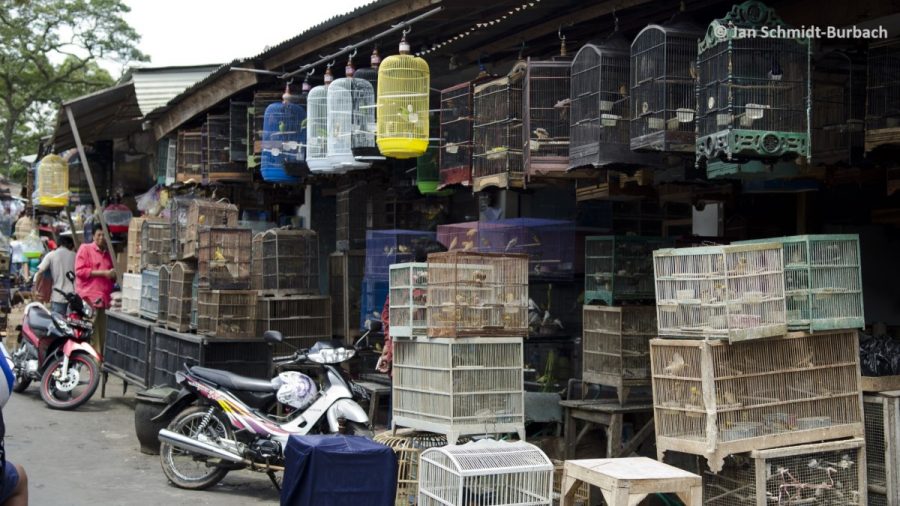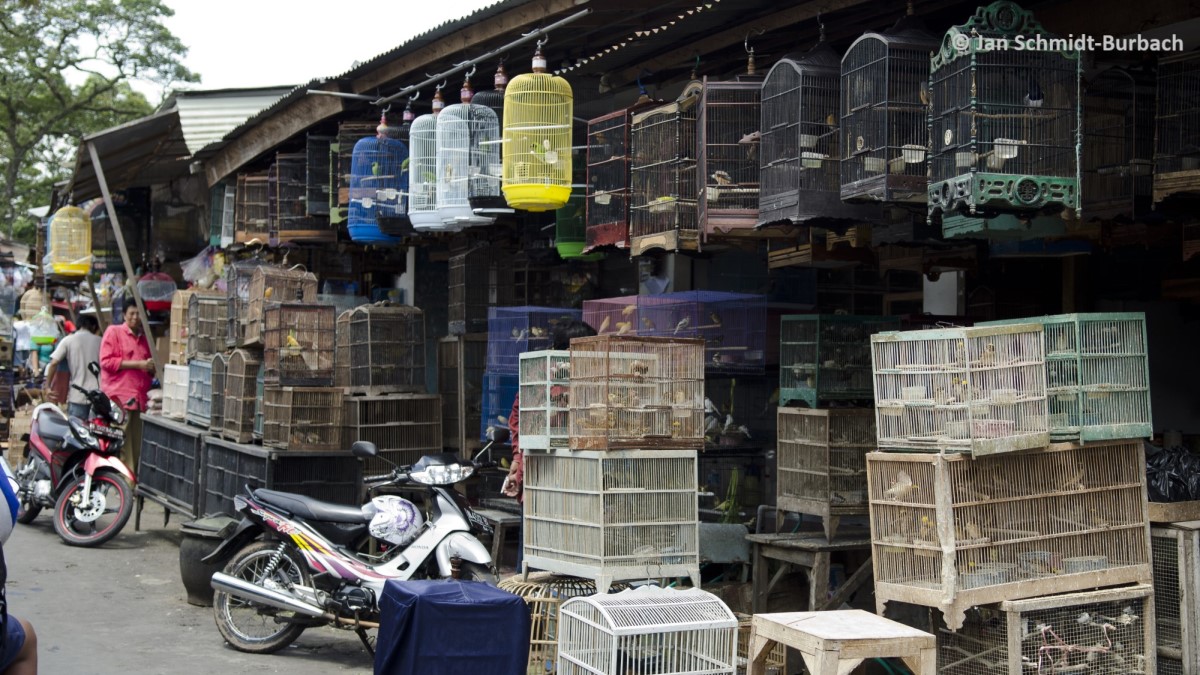
Pressure Mounts on WHO and Governments for Ban on Worldwide Wildlife Markets in Face of Covid-19
Amidst the global COVID-19 pandemic, over 240 leading animal welfare and conservation organisations from around the world have this week called on the World Health Organisation (WHO) to publicly confirm the link between live wildlife markets and the serious threats to human health; and to also recommend that governments worldwide permanently ban live wildlife markets […]

Amidst the global COVID-19 pandemic, over 240 leading animal welfare and conservation organisations from around the world have this week called on the World Health Organisation (WHO) to publicly confirm the link between live wildlife markets and the serious threats to human health; and to also recommend that governments worldwide permanently ban live wildlife markets and the use of wildlife in traditional medicine.
The organisations – including Humane Society International (HSI) and South Africa’s Blood Lions – have also written to the South African government and governments around the world, urging them to heed the coronavirus ‘tipping point’ and immediately ban wildlife trade, transport and consumption to reduce the risk of future pandemics like COVID-19.

To support the call, HSI published a science-based white paper entitled ‘Wildlife Markets and COVID-19’. This was distributed to all 54 African countries’ governments on Tuesday morning (World Health Day) as well as to other countries around the world.
In South Africa, the organisations called on Dr Zwelini Mkhize (Minister of Health) and Prof Lynn Morris (Interim Executive Director – National Institute for Communicable Diseases) to take concrete measures with regards to a national permanent ban on live wildlife markets and the use of wildlife, their products and derivatives in traditional medicine, to avert another pandemic.

“The costs to South Africa as a country and the international community at large fighting a global pandemic of this nature are vastly higher than the costs of preventing a future crisis,” says Blood Lions.
Failure to enforce a permanent and global ban on all wildlife markets could well allow for a similar, but potentially more severe, disease to emerge in the near future.
Blood Lions told SAPeople on Thursday: “We haven’t heard back from WHO as yet, but it is still early days.
“We did however get a receipt of acknowledgement from SA’s Department of Health.”
Blood Lions points out that the most authoritative voice on infectious diseases in the US, Dr. Anthony Fauci (Director – National Institute of Allergy and Infectious Diseases) said last week that “it just boggles my mind… when we have so many diseases that emanate out of that unusual human-animal interface that we don’t just shut [wildlife markets] down.”
Dr Fauci called for the international community to put pressure on governments to force a global closure of live wildlife markets.
Acting executive secretary of the UN Convention on Biological Diversity (CBD), Elizabeth Maruma Mrema, adds that “countries should move to prevent future pandemics by banning “wet markets” that sell live and dead animals for human consumption.”
The COVID-19 outbreak is believed to have originated at wildlife markets in China, where bats and pangolins may have been involved in the transmission chain of the virus to people.

“However, let’s be clear, it was the actions of people that created this environment to facilitate transmission,” says Blood Lions.
The risk of zoonotic disease transmission is heightened by the fact that most of these wildlife markets are unregulated and operate under extremely unhygienic conditions, Blood Lions said in a press release.
“In addition, the circumstances under which wild animals are typically farmed or collected from the wild, transported to and held at such markets are far from ideal.

“Overcrowded conditions with different species held in close proximity and onsite slaughter, cause immense stress on the animals weakening their immune systems.
“All this, coupled with the presence of people at wildlife markets, provides the ideal environment for pathogens to spread,” said the statement.

Temporary bans on wildlife trade
Temporary bans on wildlife trade have been welcomed but as HSI’s vice president Teresa Telecky says, these “are a good start but in order to fully address potential future outbreaks, it is imperative that countries permanently ban the wildlife trade and include wildlife used for any purpose including for medicine, fur, pets and others.
“With the stakes so high for global human health and wildlife protection, there is no place for complacency or half measures.”
HSI says wildlife markets worldwide are a “petri dish for the next global pandemic”.
Links between wild animals and infectious diseases
Covid-19 is not the first time that infectious diseases have been linked to wild animals in recent years.
Severe Acute Respiratory Syndrome (SARS), part of the coronavirus family, is also believed to have emerged from wildlife markets in China and resulted in more than 8,000 human cases across 29 countries, and 774 deaths.
Other outbreaks of infectious diseases, such as Ebola, MERS, HIV, bovine tuberculosis, rabies, and leptospirosis, are all linked to wildlife, say the organisations.
South Africa Could Inadvertently Export TB Through Lion Bones
Blood Lions states that “South Africa could inadvertently export Bovine Tuberculosis (TB) through the export of lion bones. Bovine TB is prevalent in wild and captive lions and the risk of zoonosis is very real, not only for people in South East Asia directly involved in the consumption of lion bones products, but also for workers at the breeding farms and lion abattoirs in South Africa.”
HSI says their other global concerns include:
- Wild bird markets in Vietnam have been implicated in the spread of the highly
pathogenic Avian Influenza (HPAI H5N1) virus. - Past surveys of wildlife markets in Lao PDR have identified mammals on sale known to be capable of hosting 36 zoonotic pathogens.
- A recent literature analysis using TRAFFIC survey data from wild meat restaurants,
roadside stalls and markets in Malaysia, identified 51 zoonotic pathogens that could be hosted by wild species found on sale.
